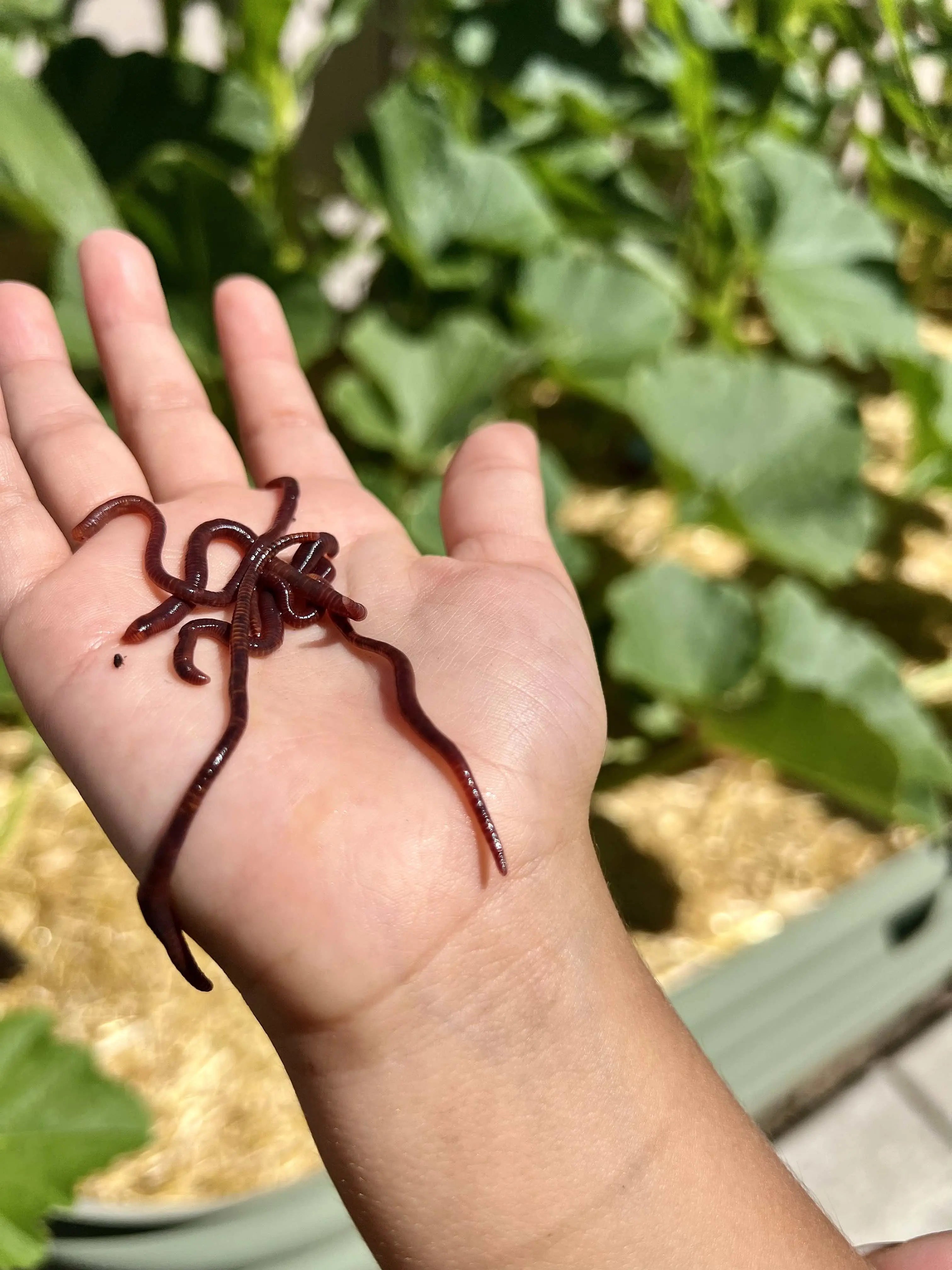The Incredible World of Red Wigglers: Boost Your Soil Fertility Today
These small yet effective organisms change organic waste into useful worm castings, dramatically boosting soil health and wellness and advertising sustainable methods. As we explore the advantages of vermicomposting and the practical steps to produce a reliable worm bin, the possible impact of these worms on your gardening success comes to be significantly apparent.
Comprehending Red Wigglers
Red wigglers, medically referred to as Eisenia fetida, are a types of earthworm that play an essential function in boosting dirt fertility. These worms thrive in organic-rich atmospheres, such as compost heap and decaying plant material, where they consume organic waste and eliminate nutrient-dense spreadings. Their unique anatomy, featuring a segmented body and a clitellum, enables them to reproduce quickly and effectively procedure big quantities of raw material.

The eco-friendly significance of red wigglers prolongs past simple waste handling; they contribute to the soil food web, cultivating a diverse area of microbes that further improve soil health. Understanding the biology and habits of red wigglers is vital for utilizing their full possibility in sustainable farming and gardening techniques.
Advantages of Vermicomposting
(Red Wiggler Express)Taking advantage of the power of red wigglers through vermicomposting deals many benefits that substantially boost soil health and fertility. Among the key advantages is the manufacturing of nutrient-rich worm castings, which are an outstanding natural plant food. Red Wiggler Express. These castings consist of essential nutrients like nitrogen, phosphorus, and potassium, promoting durable plant development and improving plant returns
The existence of worm spreadings enhances soil structure, enabling for much better water retention and drain. Red wigglers assist damage down organic matter, accelerating decomposition and recycling nutrients back into the soil.
Vermicomposting also fosters microbial activity, which is important for a healthy soil community. Beneficial microorganisms thrive in the visibility of worm spreadings, assisting in the failure of natural products and improving nutrient accessibility to plants.
Finally, vermicomposting works as an efficient waste management solution, reducing land fill waste by reusing kitchen area scraps and other organic products. This not just adds to environmental sustainability however likewise promotes a round economy within horticulture and agriculture.
How to Establish a Worm Bin
Establishing a worm bin is a straightforward procedure that can dramatically improve your composting efforts. Begin by selecting an ideal container, which can vary from a commercially readily available worm bin to a simple plastic or wooden box (Red Wiggler Express). Ensure the container has ample ventilation; tiny openings in the lid and sides will certainly help with air circulation
Next, create a bed linens layer to offer a comfy atmosphere for the red wigglers. This can be made from shredded paper, cardboard, or coconut coir, moistened to a damp, sponge-like uniformity. Load the bin to about one-third full with this bed linens product.
As soon as the bed linen is prepared, it's time to introduce the worms. Red wigglers flourish in natural waste, so area them carefully onto the bed linens. Cover the worms with a light layer of added bed linen to aid them accommodate.
Feeding Your Red Wigglers
Offering the best food for your red wigglers is essential for their wellness and the performance of your composting system. Red wigglers visit here prosper on a varied diet, primarily containing organic products such as vegetables and fruit scraps, coffee grounds, and shredded paper. These materials not only provide crucial nutrients yet also add to the microbial activity in the worm container, which is essential for the worms' digestion.
It is necessary to prevent particular foods, such as dairy items, oils, and meats, as these can bring in bugs and produce unpleasant odors. In addition, citrus peels and excessively hot foods need to be limited due to their possible to harm the worms. A well balanced technique to feeding includes monitoring the quantity of food introduced to the bin, making sure that it is consumed within a practical period to stop excess waste accumulation.
To advertise optimum food digestion, it is valuable to chop or shred larger food products prior to adding them to the container. This practice raises the area for microbial activity, facilitating quicker decay and boosting the overall effectiveness of your composting system. On a regular basis observing the worms' feeding routines will aid you change their diet plan as necessary.
Making Use Of Worm Spreadings in Your Yard

(Red Wiggler Express)Including worm castings into your garden can be achieved by mixing them right into the soil or using them as a top clothing. The slow-release nature of these spreadings ensures that nutrients are offered to plants over an extensive duration, lowering the demand for synthetic fertilizers. Furthermore, worm spreadings include valuable microbes that promote healthy and balanced dirt communities, enhancing the general strength of your garden.
To make best use of the advantages, aim to use about one component worm spreadings to 3 components soil in your growing beds. Regular applications can cause enhanced plant yields and much healthier plants, making worm spreadings a vital source for both amateur and experienced gardeners alike. By utilizing this natural change, you can cultivate a successful garden while adding to lasting horticulture practices.
Verdict
In verdict, red wigglers exhibit the crucial function of vermicomposting in enhancing soil fertility. Their ability to convert natural waste right into nutrient-rich castings considerably enhances soil structure and supports microbial variety.